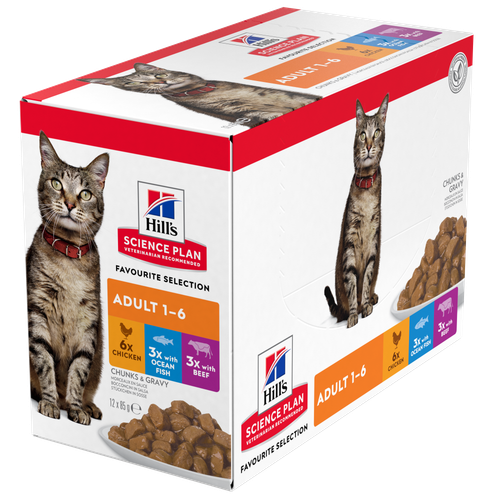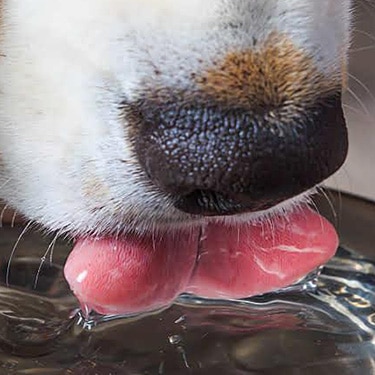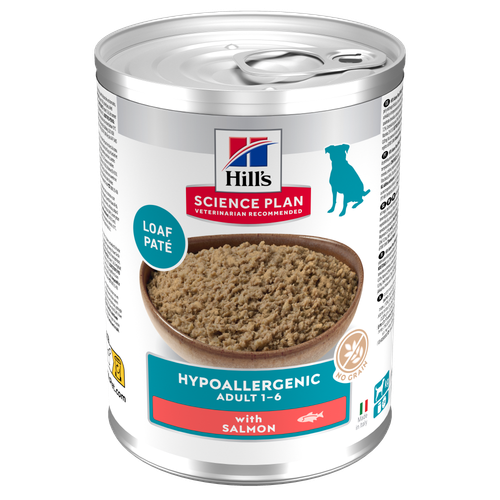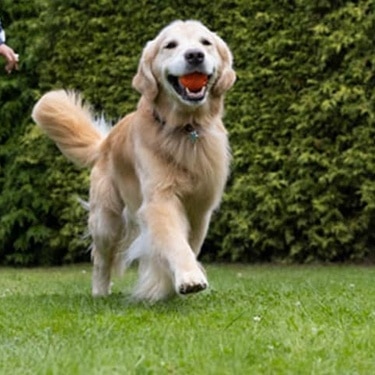
-
Find the right food for your petTake this quiz to see which food may be the best for your furry friend.Find the right food for your petTake this quiz to see which food may be the best for your furry friend.Featured productswith Chicken, with Beef
Hill's Science Plan Puppy Multipack Wet Dog Food with Chicken & Beef are complete premium pet foods for growing puppies from weaning until 1 year old and for pregnant and nursing dogs. Your puppy will love these deliciously smooth and savoury minced loaves, formulated for balanced nutrition and overall health.
Shop NowAdult Dog FoodHill's Science Plan Adult Multipack Wet Dog Food with Chicken, Beef & Turkey are complete premium pet foods for adult dogs from 1 year. Your dog will love these deliciously smooth and savoury minced loaves, formulated for balanced nutrition and overall health.
Shop Nowwith Chicken, with BeefHill's Science Plan Mature Adult Multipack Wet Dog Food with Chicken & Beef are complete premium pet foods for mature adult dogs from 7 years. Your dog will love these deliciously smooth and savoury minced loaves, formulated to deliver the appropriate amount of energy to support the needs of adult dogs.
Shop NowFeatured products Mature Adult Wet Cat Food with Chicken
Mature Adult Wet Cat Food with Chicken
Tender chicken chunks in gravy for mature adult cats. Made with easy-to-digest ingredients, high-quality protein for lean muscle maintenance and antioxidant vitamins C+E for optimal health.
Shop Now Adult Wet Cat Food with Chicken
Adult Wet Cat Food with ChickenTender chunks in gravy for cats, with high-quality protein to maintain lean muscle. With vitamin E and omega-3s & -6s for healthy skin and balanced minerals to support healthy vital organs.
Shop Now with Ocean Fish, Chicken
with Ocean Fish, ChickenTender chicken chunks in gravy for cats, with L-carnitine and fewer calories for ideal weight management. Packed with high-quality protein, omega-6s, and vitamin E for shiny fur and healthy skin.
Shop Now -
Dog
- Dog Tips & Articles
-
Health Category
- Weight
- Food & Environmental Sensitivities
- Urinary
- Digestive
- Joint
- Kidney
-
Life Stage
- Puppy Nutrition
- Adult Nutrition
- Senior Nutrition
Cat- Cat Tips & Articles
-
Health Category
- Weight
- Skin & Food Sensitivities
- Urinary
- Digestive
- Kidney
-
Life Stage
- Kitten Nutrition
- Adult Nutrition
Featured articles An Owner's Guide To Safe Water Sources For Pets
An Owner's Guide To Safe Water Sources For PetsEnsure your pet's hydration with our owner's guide to safe water sources for pets. For detailed tips on maintaining your pet's health, visit Hill's Pet UK.
Read More Tips For Mixing Wet And Dry Pet Food
Tips For Mixing Wet And Dry Pet FoodDiscover tips for mixing wet and dry pet food to ensure balanced nutrition and variety for your pet. For comprehensive feeding advice, visit Hill's Pet UK.
Read More Virtual Vet Visits: What You Need to Know
Virtual Vet Visits: What You Need to KnowLearn the ins and outs of a televet appointment before you talk to a vet online.
Read More -


A dog’s pregnancy averages 63 days in length, with nursing continuing for a few more weeks after birth. This may be the most important time in your dog’s life when it comes to precise nutrition. For a pregnant or nursing dog, malnutrition can lead to serious health issues and jeopardise the health of their puppies. (1) Talk to your veterinarian about your dog’s specific needs and keep these critical nutritional considerations in mind:
- High-fat food helps to meet the higher caloric requirement for milk production and growth of the puppies.
- High digestibility is important to help maximise calorie intake from smaller amounts of food.
- The mother’s milk production and the bone growth of the puppies require more calcium and phosphorus.
- High-protein food supports the healthy development of puppies.
- DHA from fish oil supports development of the puppies’ nervous systems.
Frequently asked questions regarding pregnancy, nursing, and nutritional essentials
What is digestibility and why does it matter?
Pregnant and nursing dogs need a lot of nutrients to support the development of their puppies, so a highly digestible food is essential. And because there is less room in the pregnant dog’s abdomen, it’s important that there is maximum nutrition in every single bite.
Why more energy and fat?
Pregnant and nursing dogs have very high energy needs. In fact, nursing dogs have 4-8 times the energy requirements of healthy adult dogs who are not nursing. Increased fat as part of precisely balanced nutrition helps to meet these energy needs.
What should I feed my dog while she’s pregnant and nursing?
We recommend feeding her a food specially designed to meet the nutrition needs of pregnant and nursing dogs. These foods feature essential nutrients in sufficient amounts to support both the needs of your dog and her growing puppies. Your veterinarian can recommend a suitable food for your dog’s needs.


Tasty Tips
Are there special instructions for feeding my pregnant or nursing dog?
Feed your pregnant dog the amount suggested on the food package, and keep feeding her puppy food until her puppies have finished weaning. Ask your veterinarian if you should make food available to her at all times after the puppies are born. This can help wean the puppies to a regular food and you’ll have peace of mind knowing their mother’s energy needs are being met.
When do I wean my puppies?
Most puppies begin eating solid food at 3-4 weeks of age. Their mum should already be eating an appropriate puppy food because she needs it in the later stages of pregnancy and for milk production. Check with your vet that this is the case and that the food is suitable for weaning. Softening the biscuits with a little warm water, offering tinned or sachet puppy food, or making a gruel can all help the puppies to start the transition from milk to solids. Weaning should be effectively complete at 6-7 weeks of age. (2)
When should I see my vet?
Visit your veterinarian regularly during pregnancy and nursing to check the mother’s condition and make sure her nutritional needs are being met. It’s important that you set up a specific schedule with your veterinarian to determine how often your dog should be examined during pregnancy and after the puppies are born.
Start puppy care right.
Keeping a record of your puppies’ weights, development and activity every 1-2 days can be very helpful for your veterinarian’s routine assessments in the first year of life. (2)
1. Small Animal Clinical Nutrition, 4th Edition. Normal Dogs; Pregnancy in Dogs; p. 238
2. Small Animal Clinical Nutrition, 4th Edition. Growing Dogs: Weaning Period; p. 247
Reviewed by Dr. Hein Meyer, DVM, PhD, Dipl-ECVIM-CA and Dr. Emma Milne BVSc FRCVS


One of our staff authors prepared this article for you
Related products

Hill's Science Plan Hypoallergenic Adult Wet Dog Food with Salmon is a complete premium pet food for all adult dogs from 1 year. This savoury tinned loaf is specially formulated for dogs with delicate skin and stomachs. It features a single novel animal protein source and is grain-free.
Hill's Science Plan Adult Multipack Wet Dog Food with Chicken, Beef & Turkey are complete premium pet foods for adult dogs from 1 year. Your dog will love these deliciously smooth and savoury minced loaves, formulated for balanced nutrition and overall health.
Hill's Science Plan Puppy Multipack Wet Dog Food with Chicken & Beef are complete premium pet foods for growing puppies from weaning until 1 year old and for pregnant and nursing dogs. Your puppy will love these deliciously smooth and savoury minced loaves, formulated for balanced nutrition and overall health.
Hill's Science Plan Mature Adult Multipack Wet Dog Food with Chicken & Beef are complete premium pet foods for mature adult dogs from 7 years. Your dog will love these deliciously smooth and savoury minced loaves, formulated to deliver the appropriate amount of energy to support the needs of adult dogs.
Related articles

Just like every other pet owner, vets are responsible for giving their pets the best possible nutrition, exercise and care needed to keep them healthy and happy.

Discover the causes, signs, and treatments of kidney disease in dogs and find methods of supporting your dog's kidney health. Learn more at Hill's Pet UK.

Wondering why your dog is constantly itching? Read on to discover common causes, such as allergies or parasites, and find out how you can help your dog.

Put your dog on a diet without them knowing
Our low calorie formula helps you control your dog's weight. It's packed with high-quality protein for building lean muscles, and made with purposeful ingredients for a flavourful, nutritious meal. Clinically proven antioxidants, Vitamin C+E, help promote a healthy immune system.
Put your dog on a diet without them knowing
Our low calorie formula helps you control your dog's weight. It's packed with high-quality protein for building lean muscles, and made with purposeful ingredients for a flavourful, nutritious meal. Clinically proven antioxidants, Vitamin C+E, help promote a healthy immune system.

